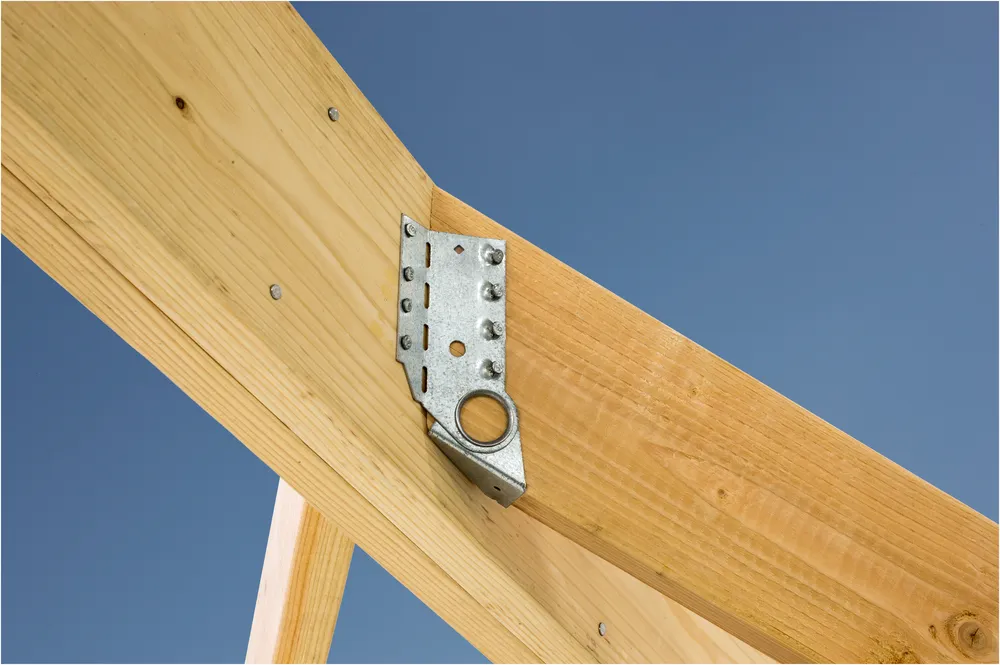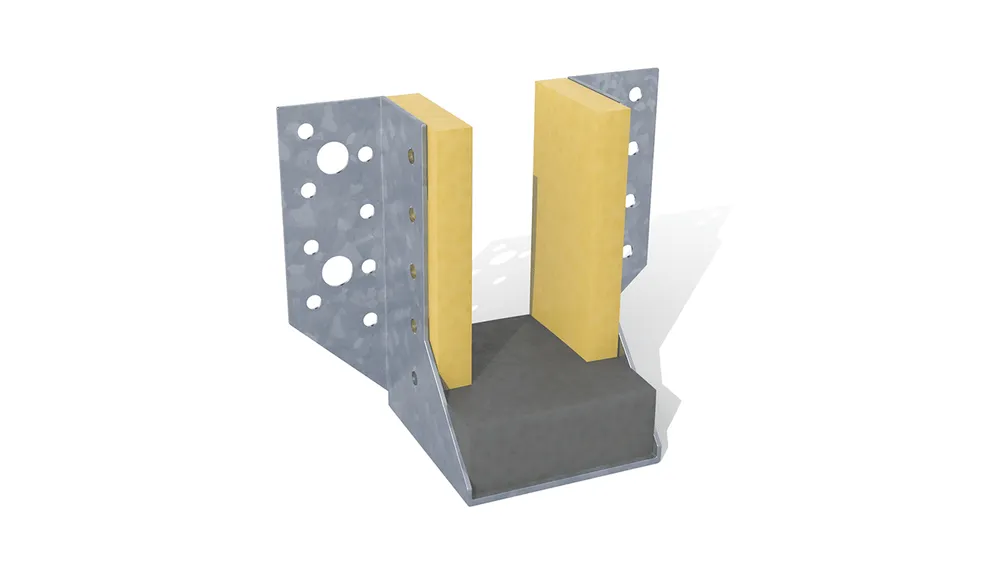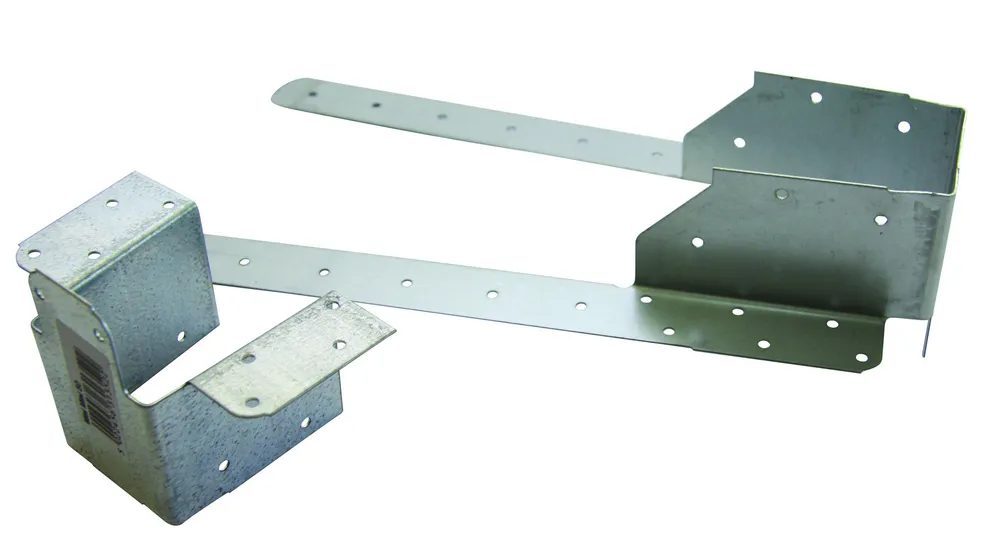Joist hangers are metal brackets that attach to the ends of wooden beams or joists, and connect them to other structural elements, such as walls, columns, or beams.
Joist hangers provide support and stability for floors, roofs, decks, and other structures that rely on joists.
They usually have price runs from ₱20 to ₱100 per piece depending the type you choose.
In this article, we will discuss joist hangers price in the Philippines and what you should know about them before buying or installing them.
What is Joist Hangers

Joist hangers are metallic fixtures purposefully designed to snugly fit around a wooden joist’s end and secure it to another architectural component.
They come equipped with slots or holes that accommodate nails or screws to strengthen the connection.
These hangers are typically crafted from galvanized steel, stainless steel, or copper to enhance their resistance to rust and corrosion.
Joist Hangers Uses
Joist hangers serve to fortify the connections between wooden joists and other architectural components. They find diverse applications, such as:
- Building floors: Joist hangers can be used to connect floor joists to rim joists, beams, or headers, creating a strong and level floor system.
- Building roofs: Joist hangers can be used to connect roof rafters to ridge beams, hip rafters, or valley rafters, creating a sturdy and sloped roof system.
- Building decks: Joist hangers can be used to connect deck joists to ledger boards, beams, or posts, creating a durable and safe outdoor living space.
- Building pergolas: Joist hangers can be used to connect pergola rafters to beams or posts, creating a decorative and shaded structure.
- Building stairs: Joist hangers can be used to connect stair stringers to landing joists or headers, creating a stable and secure staircase.
Type of Joist Hangers

There are different types of joist hangers available in the market, depending on the size, shape, and orientation of the joists. Some of the common types of joist hangers are:
- Face mount joist hangers:
These are quite common and come with flanges that extend over the joist’s face, affixed with nails or screws from both sides. These can accommodate various sizes and angles of joists. - Top mount joist hangers:
Similar to face mount variants, but with flanges extending over the top of the joist, fastened from above. These are ideal for scenarios with limited space on the joist sides. - Concealed flange joist hangers:
These are designed to obscure the joist hangers’ flanges behind the joists, nailed or screwed from behind, providing a tidier and more aesthetic appearance. - Adjustable angle joist hangers:
They come with adjustable flanges to match joists of various angles and are especially helpful for irregular or intricate structures. - Double shear joist hangers:
These offer enhanced strength and stability, with two sets of holes or slots for nails or screws, distributing the load across two points.
Joist Hangers Price List

The price of joist hangers in the Philippines may vary depending on the type, size, material, brand, and supplier of the product.
However, we can estimate the average price range of some common types of joist hangers in the Philippines as follows:
| Type | Size | Price Range |
|---|---|---|
| Face mount | 2×4 | ₱20 – ₱40 |
| Face mount | 2×6 | ₱30 – ₱60 |
| Face mount | 2×8 | ₱40 – ₱80 |
| Top mount | 2×4 | ₱25 – ₱45 |
| Top mount | 2×6 | ₱35 – ₱65 |
| Top mount | 2×8 | ₱45 – ₱85 |
| Skewable | 2×4 | ₱30 – ₱50 |
| Skewable | 2×6 | ₱40 – ₱70 |
| Skewable | 2×8 | ₱50 – ₱90 |
| Concealed flange | 2×4 | ₱35 – ₱55 |
| Concealed flange | 2×6 | ₱45 – ₱75 |
| Concealed flange | 2×8 | ₱55 – ₱95 |
| Adjustable height strap | Any size | ₱50 – ₱100 |
Note: The prices are only estimates and may not reflect the actual prices in the market. Please consult with your local supplier for the most accurate and updated prices.
Joist Hangers Pros and Cons
Joist hangers have some advantages and disadvantages that you should consider before buying or installing them. Here are some of the pros and cons of joist hangers:
Pros:
- Joist hangers provide strong and stable support for the joints between joists and other structural elements.
- Joist hangers are easy and quick to install, requiring only nails or screws and a hammer or drill.
- Joist hangers are available in various types, sizes, and materials to suit different applications and preferences.
- Joist hangers are relatively inexpensive and widely available in the market.
Cons:
- Joist hangers may not be compatible with some types of wood, such as pressure-treated wood, which may require special types of joist hangers or fasteners.
- Joist hangers may not be suitable for some situations where the joists are exposed to moisture, fire, or chemicals, which may damage or corrode the metal brackets.
- Joist hangers may not be aesthetically pleasing for some people who prefer a more natural or rustic look for their structures.
Joist Hangers Alternatives
If you are looking for alternatives to joist hangers, you may consider some of the following options:
- Ledger strips: These are wooden strips attached to the joist sides and nailed or screwed to the other structural element. They are cheaper and have a more natural appearance than joist hangers but may not be as robust or durable.
- Metal straps: These are metal bands wrapping around the joists and fastening them to the other structural element. They are stronger and more flexible than joist hangers, but possibly more costly and challenging to install.
- Mortise and tenon joints: Traditional woodworking joints involving a slot (mortise) cut in one wood piece and a protruding piece (tenon) from another wood piece fitted into it. They are strong and elegant but require more skill and time to create.
Thing You Should Know about Joist Hangers
Here are some of questions and their answers you need to know about joist hangers :
- Why use joist hangers?
Joist hangers connecting wooden beams or joists to a wall, floor, or ceiling. They provide strong and stable support for the joists and prevent them from twisting, bending, or sagging. - Why is it called a joist?
A joist is a horizontal beam that supports a floor, ceiling, or roof. The word “joist” comes from the Old French word “giste”, which means “beam” or “support”. - How safe are joist hangers?
Joist hangers are safe if they are installed properly and according to the manufacturer’s instructions. They should be compatible with the size, shape, and material of the joists and the supporting structure. They should also be fastened securely with the appropriate nails or screws. - How strong is a joist hanger?
The strength of a joist hanger depends on various factors such as the type, size, material, quality, and installation of the joist hanger. Generally speaking, a joist hanger can support up to 600 pounds per square inch (psi) of load. - What are the uses of joist straps and hangers in masonry construction?
Joist straps and hangers are used in masonry construction to connect wooden beams or joists to brick or concrete walls. They help distribute the load of the wood to the masonry and prevent cracking or damage.


